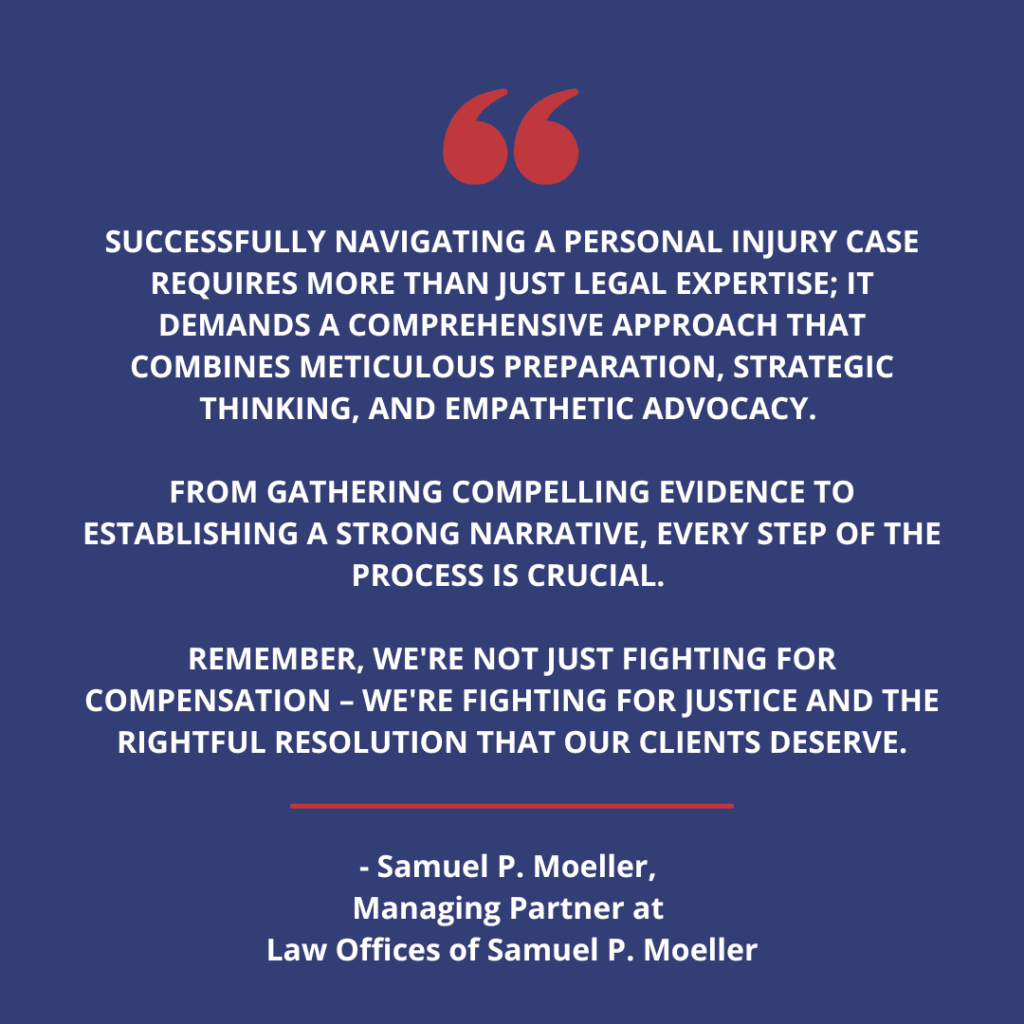Finding yourself involved in a personal injury case can be an overwhelming and challenging experience. Whether it’s a slip and fall accident, a car collision, or any other form of injury caused by someone else’s negligence, seeking compensation for your damages requires careful preparation. This blog article will guide you through the essential steps to prepare for a personal injury case, ensuring that you are well-equipped to protect your rights and maximize your chances of a successful outcome.
1. Seek Immediate Medical Attention:
Your health and well-being should always be your top priority. After sustaining an injury, seek immediate medical attention. Even if the injuries seem minor at first, it’s crucial to document the extent of your injuries professionally. Medical records will play a vital role in determining the severity of your injuries and the necessary compensation for your recovery.
2. Preserve Evidence:
Gathering and preserving evidence is crucial for building a strong case. As soon as possible after the incident, collect all relevant evidence, including photographs of the accident scene, any property damage, and your injuries. If there are any witnesses, obtain their contact information, as their statements may support your version of events.
3. Consult an Experienced Personal Injury Attorney:
Navigating the legal complexities of a personal injury case can be daunting. Engaging an experienced personal injury attorney early in the process is crucial. A skilled lawyer can guide you through the legal process, protect your rights, and advocate on your behalf to maximize your compensation. Choose an attorney who focuses on personal injury cases and has a proven track record of successful outcomes.
4. Keep Detailed Records:
Maintain a meticulous record of all relevant information related to your case. This should include medical bills, records of treatment and rehabilitation, lost wages, and any other expenses incurred due to the injury. Your attorney will use this information to calculate the appropriate compensation for your damages.
5. Avoid Social Media:
In today’s digital age, it’s common for people to share every aspect of their lives on social media. However, during a personal injury case, it’s best to avoid posting about the incident or your injuries on social media platforms. Defense attorneys or insurance companies may use your posts against you to undermine your claims. Be cautious and discuss your social media activity with your attorney.
6. Understand the Legal Process:
Educate yourself about the personal injury legal process. Your attorney will guide you through every step, but having a basic understanding will help you stay informed and better cooperate with your legal team. Know what to expect, including settlement negotiations, the possibility of mediation or arbitration, and the potential of going to trial if a fair settlement cannot be reached.
7. Be Patient and Prepared:
Personal injury cases can be time-consuming, often taking months or even years to reach a resolution. Be patient and prepared for the long haul. Your attorney will work diligently to pursue your best interests, but it’s essential to stay committed and trust the legal process.
Preparing for a personal injury case requires a combination of diligence, patience, and professional support. By seeking immediate medical attention, preserving evidence, and consulting with an experienced personal injury attorney, you’ll be better equipped to navigate the legal process successfully. Keeping detailed records, avoiding social media pitfalls, and understanding the legal process will also strengthen your case. Remember, while the journey might be challenging, seeking compensation for your damages is essential to securing your future and obtaining the justice you deserve.

[forminator_form id=”169″]